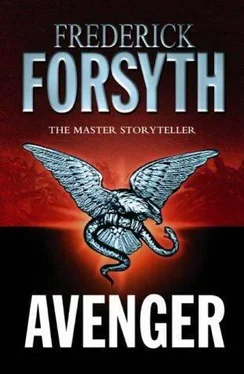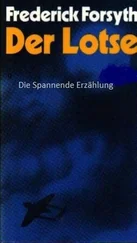"Mind telling me how much you keep in that pouch?" he asked.
"I brought a thousand dollars," said Ricky trustingly, "just in case of emergencies."
"Shit. Just don't wave it around, or you'll create one. These guys can take the summer off on that."
Ricky promised to be discreet. Postal services, he soon discovered, were nonexistent. Inasmuch as no Bosnian state existed, no Bosnian post office had come into being and the old Yugoslav services had collapsed. John Slack told him any driver running up to Croatia or on to Austria would mail letters and cards for every one. Ricky wrote a quick card from the bundle he had bought at the Vienna airport and thrown into his haversack. This the Swede took north. Mrs. Colenso received it a week later.
Travnik had once been a thriving market town, inhabited by Serbs, Croats, and Bosnian Muslims. Their presence could be discerned by the churches. There was a Catholic one for the departed Croats, an Orthodox one for the also-departed Serbs, and a dozen mosques for the majority, Muslims, the ones still called Bosnians.
With the coming of the civil war, the tri-ethnic community, which had lived in harmony for years, was shattered. As pogrom after pogrom was reported across the land, all interethnic trust evaporated.
The Serbs quit and retreated north of the Vlasic mountain range that dominates Travnik, across the Lasva River valley and into Banja Luka on the other side.
The Croats were also forced out, and most went ten miles down the road to Vitez. Thus three single-ethnic strongholds were formed. Into each poured the refugees of that particular ethnic group.
In the world media, the Serbs were portrayed as the perpetrators of all the pogroms, though they had also seen Serb communities butchered when isolated and in the minority. The reason was that in the old Yugoslavia the Serbs had had dominant control of the army; when the country fell apart, they simply grabbed 90 percent of the heavy weaponry, giving them an insuperable edge.
The Croats, also no slouches when it came to slaughtering non-Croat minorities in their midst, had been granted irresponsibly premature recognition by the German chancellor Helmut Kohl; they could then buy weapons on the world market.
The Bosnians were largely unarmed and kept that way on the advice of European politicians. As a result, they suffered most of the brutalities. In late spring 1995, it would be the Americans who, sick and tired of standing by and doing nothing, would use their military power to give the Serbs a bloody nose and force all parties to the conference table at Dayton, Ohio. The Dayton Agreement would be implemented that coming November. Ricky Colenso would not see it.
By the time Ricky reached Travnik, it had stopped a lot of shells from Serb positions across the mountains. Most of the buildings were shrouded in planks leaning against the walls. If hit by an "incomer," they would be splintered to matchwood but save the house itself. Most windows were missing and had been replaced by plastic sheeting. The brightly painted main mosque had somehow been spared a direct hit. The two largest buildings in town, the gymnasium (high school) and the once famous music school, were stuffed with refugees.
With virtually no access to the surrounding countryside and thus access to growing crops, the refugees, about three times the original population, were dependent on the aid agencies to survive. That was where Loaves-n-Fishes came in, along with a dozen other smaller NGOs in the town.
But the two Landcruisers could be piled with up to five hundred pounds of relief aid and still make it to various outlying villages and hamlets, where the need was even greater than in Travnik centre. Ricky happily agreed to haul the sacks of food and drive the offroads into the mountains to the south.
Four months after he had sat in Georgetown and seen on the television screen the images of human misery that had brought him here, he was happy. He was doing what he came to do. He was touched by the gratitude of the weary peasants and their brown, saucereyed children when he hauled sacks of wheat, maize, powdered milk, and soup concentrates into the centre of an isolated village that had not eaten for a week.
He believed he was paying back in some way for all the benefits and comforts that a benign God, in whom he firmly believed, had bestowed upon him at his birth simply by creating him an American.
He spoke not a word of Serbo-Croat, the common language of all Yugoslavia, nor the Bosnian patois. He had no idea of the local geography, where the mountain roads led, where was safe and where it could be dangerous.
John Slack paired him with one of the local Bosnian staffers, a young man with reasonable, schoollearned English, called Fadil Sulejman, who acted as his guide, interpreter, and navigator.
Each week through April and the first two weeks of May Ricky dispatched either a letter or card to his parents; and with greater or lesser delays, depending on who was heading north for resupplies, they arrived in Georgetown bearing Croatian or Austrian stamps.
It was in the second week of May that Ricky found himself alone and in charge of the entire depot. Lars, the Swede, had had a major engine breakdown on a lonely mountain road in Croatia, north of the border but short of Zagreb. John Slack had taken one of the Landcruisers to help him out and get the truck back into service.
Fadil Sulejman asked Ricky for a favour.
Like thousands in Travnik, Fadil had been forced to flee his home when the tide of war swept toward it. He explained that his family home had been a small farm in an upland valley on the slopes of the Vlasic range. He was desperate to know if there was anything left of it. Had it been torched or spared? Was it still standing? When the war began, his father had buried family treasures under a barn. Were they still there? In a word, could he visit his parental home for the first time in three years?
Ricky happily gave him time off, but that was not the real point. With the tracks up the mountain slick with spring rain, only an off-road would make it. That meant borrowing the Landcruiser.
Ricky was in a quandary. He wanted to help, and he would pay for the gas. But was the mountain safe? Serbian patrols had once ranged over it, using their artillery to pound Travnik below.
That was a year ago, Fadil insisted. The southern slopes, where his parents' farmhouse was situated, were quite safe now. Ricky hesitated and then, moved by Fadil's pleading, wondering what it must be like to lose your home, he agreed. With one proviso: He would come, too.
In fact, in the spring sunshine, it was a very pleasant drive. They left the town behind and went up the main road toward Donji Vakuf for ten miles before turning off to the right.
The road climbed, degenerated into a track, and went on climbing. Beech, ash, and oak in their spring leaf enveloped them. It was, thought Ricky, almost like the Shenandoah where he had once gone camping with a school party. They began to skid on the corners, and he admitted they would never have made it without the four-wheel drive.
The oak gave way to conifers, and at five thousand feet they emerged into an upland valley, invisible from the road far below, a sort of secret hideaway. In the heart of the valley, they found the farmhouse. Its stone smokestack had survived, but the rest had been torched and gutted. Several sagging barns, unfired, still stood beyond the old cattle pens. Ricky glanced at Fadil's face and said, "I am so sorry."
They dismounted by the blackened firestack, and Ricky waited as Fadil walked through the wet ashes, kicking here and there at what was left of the place he was raised in. Ricky followed him as he walked past the cattle pens and the cesspit, still brimming with its nauseous contents, swollen by the rains, to the barns where his father might have buried the family treasures to save them from marauders. That was when they heard the rustle and the whimper.
Читать дальше










